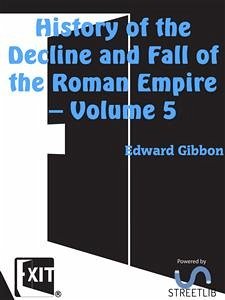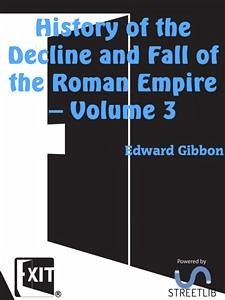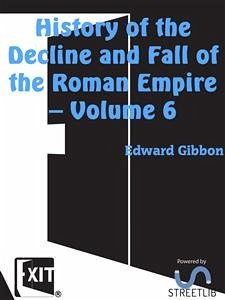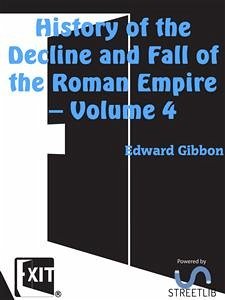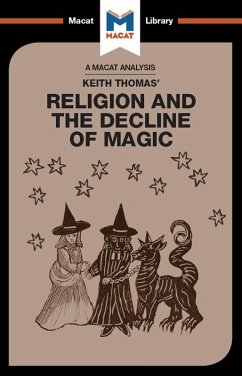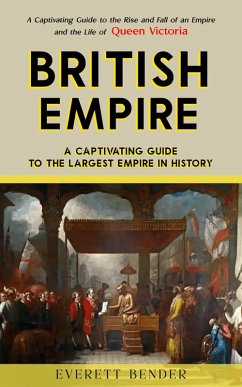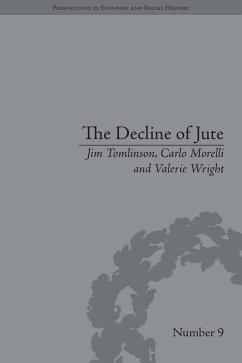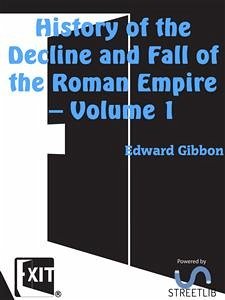
History of the Decline and Fall of the Roman Empire — Volume 1 (eBook, ePUB)

PAYBACK Punkte
0 °P sammeln!
Preface Of The Author. It is not my intention to detain the reader by expatiating on the variety or the importance of the subject, which I have undertaken to treat; since the merit of the choice would serve to render the weakness of the execution still more apparent, and still less excusable. But as I have presumed to lay before the public a first volume only of the History of the Decline and Fall of the Roman Empire, it will, perhaps, be expected that I should explain, in a few words, the nature and limits of my general plan. The memorable series of revolutions, which in the course of about t...
Preface Of The Author.
It is not my intention to detain the reader by expatiating on the variety or the importance of the subject, which I have undertaken to treat; since the merit of the choice would serve to render the weakness of the execution still more apparent, and still less excusable. But as I have presumed to lay before the public a first volume only of the History of the Decline and Fall of the Roman Empire, it will, perhaps, be expected that I should explain, in a few words, the nature and limits of my general plan.
The memorable series of revolutions, which in the course of about thirteen centuries gradually undermined, and at length destroyed, the solid fabric of human greatness, may, with some propriety, be divided into the three following periods:
I. The first of these periods may be traced from the age of Trajan and the Antonines, when the Roman monarchy, having attained its full strength and maturity, began to verge towards its decline; and will extend to the subversion of the Western Empire, by the barbarians of Germany and Scythia, the rude ancestors of the most polished nations of modern Europe. This extraordinary revolution, which subjected Rome to the power of a Gothic conqueror, was completed about the beginning of the sixth century.
II. The second period of the Decline and Fall of Rome may be supposed to commence with the reign of Justinian, who, by his laws, as well as by his victories, restored a transient splendor to the Eastern Empire. It will comprehend the invasion of Italy by the Lombards; the conquest of the Asiatic and African provinces by the Arabs, who embraced the religion of Mahomet; the revolt of the Roman people against the feeble princes of Constantinople; and the elevation of Charlemagne, who, in the year eight hundred, established the second, or German Empire of the West
III. The last and longest of these periods includes about six centuries and a half; from the revival of the Western Empire, till the taking of Constantinople by the Turks, and the extinction of a degenerate race of princes, who continued to assume the titles of Cæsar and Augustus, after their dominions were contracted to the limits of a single city; in which the language, as well as manners, of the ancient Romans, had been long since forgotten. The writer who should undertake to relate the events of this period, would find himself obliged to enter into the general history of the Crusades, as far as they contributed to the ruin of the Greek Empire; and he would scarcely be able to restrain his curiosity from making some inquiry into the state of the city of Rome, during the darkness and confusion of the middle ages.
It is not my intention to detain the reader by expatiating on the variety or the importance of the subject, which I have undertaken to treat; since the merit of the choice would serve to render the weakness of the execution still more apparent, and still less excusable. But as I have presumed to lay before the public a first volume only of the History of the Decline and Fall of the Roman Empire, it will, perhaps, be expected that I should explain, in a few words, the nature and limits of my general plan.
The memorable series of revolutions, which in the course of about thirteen centuries gradually undermined, and at length destroyed, the solid fabric of human greatness, may, with some propriety, be divided into the three following periods:
I. The first of these periods may be traced from the age of Trajan and the Antonines, when the Roman monarchy, having attained its full strength and maturity, began to verge towards its decline; and will extend to the subversion of the Western Empire, by the barbarians of Germany and Scythia, the rude ancestors of the most polished nations of modern Europe. This extraordinary revolution, which subjected Rome to the power of a Gothic conqueror, was completed about the beginning of the sixth century.
II. The second period of the Decline and Fall of Rome may be supposed to commence with the reign of Justinian, who, by his laws, as well as by his victories, restored a transient splendor to the Eastern Empire. It will comprehend the invasion of Italy by the Lombards; the conquest of the Asiatic and African provinces by the Arabs, who embraced the religion of Mahomet; the revolt of the Roman people against the feeble princes of Constantinople; and the elevation of Charlemagne, who, in the year eight hundred, established the second, or German Empire of the West
III. The last and longest of these periods includes about six centuries and a half; from the revival of the Western Empire, till the taking of Constantinople by the Turks, and the extinction of a degenerate race of princes, who continued to assume the titles of Cæsar and Augustus, after their dominions were contracted to the limits of a single city; in which the language, as well as manners, of the ancient Romans, had been long since forgotten. The writer who should undertake to relate the events of this period, would find himself obliged to enter into the general history of the Crusades, as far as they contributed to the ruin of the Greek Empire; and he would scarcely be able to restrain his curiosity from making some inquiry into the state of the city of Rome, during the darkness and confusion of the middle ages.



